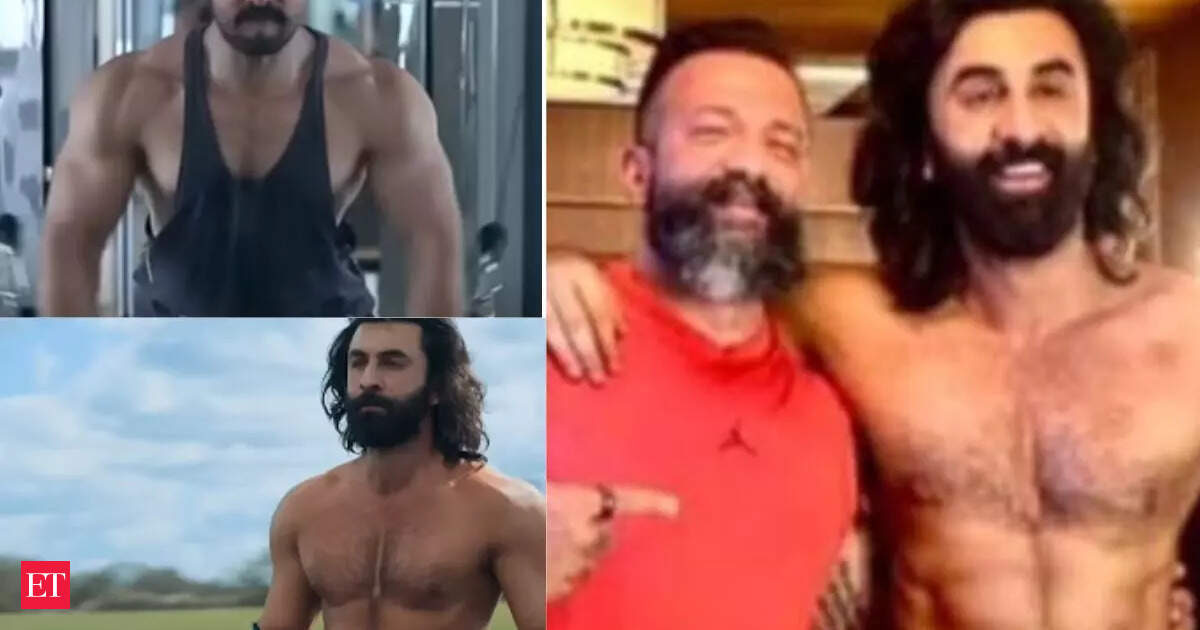There is no shortcut to weight loss. Staying in shape requires consistency, discipline, and hard work, combined with proper exercise and a balanced diet. While crash diets and instant results often sound tempting, they usually harm the body more than they help.
Celebrity fitness coach Shivohaam Bhatt, who has trained several top Indian actors including Amitabh Bachchan, Aamir Khan, Ranbir Kapoor, Ram Charan, and Jacqueline Fernandez, recently shared an Instagram video addressing this very issue. In his post, Bhatt broke down three of the most common myths around fat loss and explained why so many people fail to achieve lasting results despite intense effort.
Myth 1 – Starving slows metabolismAccording to Shivohaam Bhatt, extreme dieting or starving the body is one of the biggest mistakes people make while trying to lose weight. He explained that skipping meals or drastically cutting calories can have the opposite effect on metabolism.
Also Read: Man shares lessons that saved his life
“Most people think eating less and working out more is the key to fat loss. So they go into extreme calorie deficits. What actually happens? The body goes into survival mode. Instead of burning only fat, it begins breaking down muscle tissue to use as energy. Losing muscle is the fastest way to slow down metabolism. Why? Because muscle is a metabolically active tissue – it burns calories even at rest,” he shares.
 Live Events
Live Events
He further added that many people get misled by the scale when they see quick results from starvation, not realising it’s mostly muscle loss. “So when you starve yourself, yes, the scale drops—but your body becomes weaker, softer, and more prone to fat regain. Real fat loss isn’t about eating less—it’s about eating right to fuel performance and preserve muscle,” he said.Bhatt explained that instead of eliminating food groups or drastically cutting calories, one should focus on eating balanced meals with enough protein, complex carbohydrates, and healthy fats. A steady approach, he said, ensures that the body burns fat without losing muscle.Myth 2 – Cardio alone helps you lose weightShivohaam Bhatt said many people still believe that long hours of cardio are the secret to fat loss. While cardio has its benefits, such as improving heart health and endurance, it is not enough to build a lean and toned physique.
Also Read: Don’t troll KBC kids
He emphasised that resistance training is essential for sustainable fat loss. Strength training helps increase muscle mass, which in turn boosts metabolism. According to Bhatt, “Cardio helps with heart health and stamina, but resistance training ensures your body looks toned and strong.”
He advised that combining both forms of exercise — cardio and strength training — yields the best results. A mix of the two not only improves fitness levels but also keeps the body active and burning calories even when at rest.
Bhatt also cautioned against depending only on high-intensity workouts without proper recovery or nutrition. He said such practices can increase fatigue, reduce muscle mass, and even lead to injuries that slow progress in the long run.
Myth 3 – Spot reduction worksThe idea of targeting fat from specific parts of the body through focused exercises is another common misconception. Shivohaam Bhatt explained that fat loss doesn’t work that way.
“You cannot decide where your body will burn fat from,” he said. “Spot reduction doesn’t exist. Fat loss happens gradually and across the whole body when you stay consistent with training and nutrition.”
He shared that people often overtrain a particular area, such as doing hundreds of crunches to lose belly fat or leg exercises to reduce thigh fat, expecting quick results. In reality, the body reduces fat uniformly when overall calorie expenditure exceeds calorie intake.
He recommended focusing on overall strength and conditioning workouts, paired with a clean and consistent diet, to achieve visible results across the body.
Real fitness takes time and balanceIn his post, Bhatt reminded followers that health is not a 30-day challenge but a long-term commitment. He said fitness goals should be built around sustainability rather than shortcuts.
He urged people to stay patient with their progress and not compare themselves with others. According to him, every person’s metabolism, genetics, and body composition are different — what works for one may not work for another. He also encouraged followers to seek guidance from certified trainers or nutritionists rather than relying on social media trends or extreme diets.

